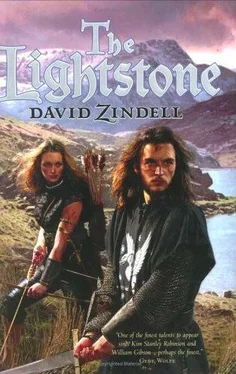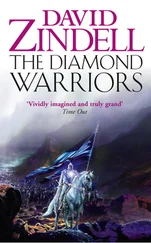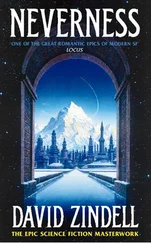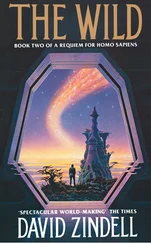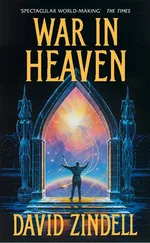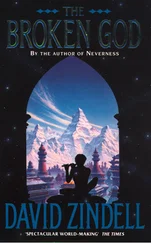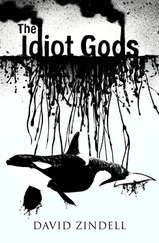David Zindell - The Lightstone
Здесь есть возможность читать онлайн «David Zindell - The Lightstone» — ознакомительный отрывок электронной книги совершенно бесплатно, а после прочтения отрывка купить полную версию. В некоторых случаях можно слушать аудио, скачать через торрент в формате fb2 и присутствует краткое содержание. Жанр: Фэнтези, на английском языке. Описание произведения, (предисловие) а так же отзывы посетителей доступны на портале библиотеки ЛибКат.
- Название:The Lightstone
- Автор:
- Жанр:
- Год:неизвестен
- ISBN:нет данных
- Рейтинг книги:5 / 5. Голосов: 1
-
Избранное:Добавить в избранное
- Отзывы:
-
Ваша оценка:
- 100
- 1
- 2
- 3
- 4
- 5
The Lightstone: краткое содержание, описание и аннотация
Предлагаем к чтению аннотацию, описание, краткое содержание или предисловие (зависит от того, что написал сам автор книги «The Lightstone»). Если вы не нашли необходимую информацию о книге — напишите в комментариях, мы постараемся отыскать её.
The Lightstone — читать онлайн ознакомительный отрывок
Ниже представлен текст книги, разбитый по страницам. Система сохранения места последней прочитанной страницы, позволяет с удобством читать онлайн бесплатно книгу «The Lightstone», без необходимости каждый раз заново искать на чём Вы остановились. Поставьте закладку, и сможете в любой момент перейти на страницу, на которой закончили чтение.
Интервал:
Закладка:
That night we found another inn where we took our rest. We set out very early the next morning, and rode hard all that day. It was the seventh of Soldru – a day of clear skies and crisp air, perfect weather for riding. The miles passed quickly as a measure of the hours we spent cantering through the ever-more populated land. But measured by our anticipation of attending King Kiritan's birthday celebration, the time passed very slowly indeed.
Around noon, we entered a hilly country. I would have thought to find there fewer fields, but the Alonians had cut them out of the very land. Except on the steepest slopes, terraces of wheat and barley like green steps ran in contours around the hills.
White stone walls supported each terrace and set one level off from another. It was a beautiful thing to see, and a hint of the Alonians' great skill at building things.
A few hours later, the proof of their genius was laid before us. The Nar Road cut between two of these hills; at the notch, where the road rose to its greatest elevation before winding down into lower and flatter lands, we had our first view of Tria. I could hardly believe what my eyes told me must be true. For there, to the northwest across some miles of gende farmland, great white towers rose high above the highest wall I had ever seen. They sparkled as if covered with diamond dust, catching and scattering the brilliant sunlight, and cut like spears a quarter mile high into the blue dome of the sky. Other, lesser buildings – though still very great – formed a jagged line beneath them. Master Juwain told us that ail these structures had been cast of living stone during the Age of Law, a marvelous substance of great beauty and strength. Although the secret of its making had long been lost, its splendor remained to remind men of the glories to which they might attain.
The City of light, Tria was called. It stood before us in the late after-noon sun shimmering like a great jewel cut with thousands of facets.
It was sited at the mouth of the Poru River where it widened and flowed into the Bay of Belen. I saw these blue waters gleaming along the horizon beyond the city. It was my first glimpse of the Great Northern Sea. Jutting out of the bay were the dark shapes of many islands. The largest of these – it looked almost like a skull made of black rock – was called Damoom. Master Juwain said that it had been named after the world where the Dark Angel Angra Mainyu, was bound. For on this ominous-looking island, Aramesh had imprisoned Morjin after his defeat.
We rode down to the city, approaching it from the southeast. To our right was the Bay of Belen; to our left, the mighty Poru wound like a brown snake through the gentle, green countryside. We crossed fields and estates that led nearly up to the great walls themselves. Three thousand years ago, Master Juwain said, the city had overflowed for miles beyond the walls, encompassing the very ground over which we now rode. But, like Silvassu and other cities, it had diminished in size and greatness all during the Age of the Dragon. Only a few scattered houses, smithies and such remained outside the walls to hint of its former dimensions.
The Poru divided Tria into two unequal halves, west and east. East Tria, the older part of the city, was the smaller of the two – though still very much greater than any other city I had ever seen. The wall protecting it began at the banks of the bay and curved around it for a good four miles to the southwest, where it ended in a stout tower abutting the river. A mile to the west, across the river, the wall began again and ran almost straight for another four miles, before turning back toward the bay to form the defenses of the western part of the city. Nine gates, named after the nine Galadin who had defeated Angra Mainyu, were set into this great wall. The Nar Road led straight up to the Ashtoreth Gate, which opened upon the southern districts of East Tria. We rode past its iron doors unchallenged. And so we entered the City of Light late on the day that Count Dario had appointed as the date that his king would call the great quest.
'We'll still have to hurry if we're to be on time,' Kane said. 'We've the whole city still to cross.'
The King's Palace, he said, lay a good five miles across the river in West Tria. The Nar Road led almost straight towards it, and so we would keep to it for nearly the whole distance. It was hard to hurry, however, on such a crowded thoroughfare.
With our cloaks pulled tightly around us to hide our faces, we rode in a line as quickly as we could, with Kane taking the lead. But carts drawn by tired horses and laden with wheat grain – and with barrels of beer, bolts of cloth and a hundred other things – blocked our way. Many hundreds of people crowded the street, too. Most were dressed poorly in homespun woolens, but there were also merchants wearing fine silks and not a few mercenaries clad in mail, even as Kane and I were. The din of horses whinnying, men shouting and iron|-shod wheels rolling along the paving stones nearly deafened me. I had never heard such a noise other than on a battlefield.
It came to me then that cities such as Tria, however beautiful, were dangerous places where men had to fight for a few feet of space or to keep themselves from being trampled – if not worse.
I should have kept my mind on forcing my way through the crowds and not allowing Altaru to strike out with his deadly hooves at anyone who drew too close. Instead, I stared at the many sights, even as Maram and the others did. Along the street were many stalls selling various viands: roasted breads, sausages, hams, apple pies and hot cakes sizzling in sesame oil. The smells of all these foods hung in the air and set our mouths watering. Maram eyed the stands of the beer sellers and almost stopped at a shop which advertised wines from Galda and Karabuk. I stared at a diamond seller, whose sparkling wares might have been looted from the dead Valari at the Sarburn and reset into brooches and rings. Other shops sold pottery from the Elyssu, Sunguru cotton as white as snow, glasswork handblown by the Delian masters of that art -almost anything made by the hand of man. And, in truth, the Trians sold many other things less substantial. Would-be servers offered to read our futures for a few bronze coins while the astrologers did a brisk business casting horoscopes and drawing for their clients maps of the stars.
Everyone seemed eager to take our money. Hawkers shouted at us to enter shops selling fine jewelry; beautifully dressed – and beautiful -women came up to us and pulled insistently on our cloaks. Swarms of ragged children bravely darted in between our horses, holding out their hands as they stared at us with their big, sad eyes. Kane called them beggars. I had never seen such poor, gaunt-faced people before. Every few yards, it seemed, I reached into my purse to give one of them a silver coin. Kane cast a dark look at them, shooing them away as if they were flies.
He told me that not even King Kiritan had enough money to feed all the poor of the world. But I couldn't help myself. I could feel the aching of their empty bellies. My coins couldn't feed everyone, but perhaps they would put bread into the mouths of these hungry people for a few days.
Atara, too, gave them coins: gold coins, of which she seemed to have many. She was a Sarni warrior, after all, and it was said that gold flows down to the Wendrush like the waters of the rivers to the sea. Kane chided her for attracting attention to us and wasting her money. He said that the Beggar King would likely rob the children of their new-found riches. Atara, however, met his hardened stare with an icy one of her own. She drew herself up straight in her saddle and told him, 'They're children. Have you no heart?'
Kane muttered something about the softness of women, and turned to gaze upon a great tower near the city's wall The Tur-Tisander, he said it was called. To distract us from the beggars, he told us more about Morjin's defeat. He said that following the Battle of Sarburn Morjin had fled to the city and tried to hide behind its walls.
Читать дальшеИнтервал:
Закладка:
Похожие книги на «The Lightstone»
Представляем Вашему вниманию похожие книги на «The Lightstone» списком для выбора. Мы отобрали схожую по названию и смыслу литературу в надежде предоставить читателям больше вариантов отыскать новые, интересные, ещё непрочитанные произведения.
Обсуждение, отзывы о книге «The Lightstone» и просто собственные мнения читателей. Оставьте ваши комментарии, напишите, что Вы думаете о произведении, его смысле или главных героях. Укажите что конкретно понравилось, а что нет, и почему Вы так считаете.
